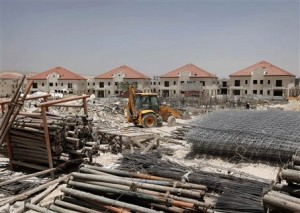 Al Jazeera English, March 27, 2010
Al Jazeera English, March 27, 2010
In recent weeks, the relationship between Washington and Jerusalem grew tense as the US demanded an end to settlement growth and Israel refused. For Israelis the row was embarrassing, but it wasn’t a surprise. To a people sharply divided over settlements and their place in the peace process, the feud was a mirror of society’s inner conflicts.
Speaking on the condition of anonymity, a business owner tells Al-Jazeera that he was “attacked” by his wife, adult children, and other family members after expressing unconventional beliefs. “I wasn’t against the situation where [settlers] go and live on a hilltop,” he says, referring to illegal outposts, “just like I wasn’t against Palestinians who want to live here. I thought it was a good idea to have Israelis and Palestinians make one state…with the same rights [for Jews and Arabs].”
Due to the reactions of his loved ones, however, he is reconsidering.
If he aligns himself with the mainstream, he might find his thoughts similar to those of Noga Martin. A former journalist, Martin, 34, says that she hopes to see Palestinians form an independent state. As such, she says, “Illegal outposts have to go. They strike me as a completely unnecessary provocation that only throws fuel on the fire.”
“I have no personal hatred towards the settlers,” she adds, “except for the ones who act violently.”
During the annual olive harvest, settlers sometimes attack Palestinian farmers and set fire to their groves. In the West Bank’s Hebron, a Muslim-majority city with a small Jewish presence, tensions flare on a regular basis—with settlers throwing stones, garbage, wine, and bottles of urine at Palestinians. “They seem to be doing anything possible to fan the flames,” Martin comments.
But there are sites of quiet provocation like Gilo, Pisgaat Zeev, and Givaat Zeev. All lie beyond the Green Line, the border drawn at the end of the 1948 Arab-Israeli War. In Palestinian eyes these Jewish communities are a land grab. Jewish Israelis simply consider Gilo and Pisgaat Zeev neighborhoods of Jerusalem. And Givaat Zeev, further out in the West Bank, is a suburb they say.
While Martin acknowledges that these areas are past the Green Line, she says, “No one would call Gilo or Pisgat Zeev a settlement, including me.”
Martin maintains that she doesn’t support settlements. But if she accepts some, where does she draw the line? “It’s tough to say. Look, Gilo isn’t going anywhere, neither is Pisgat Zeev neither is Givaat Zeev. And even the larger settlement blocks beyond the Green Line [such as] Ariel. Let’s be realistic here. You can talk about what should happen and you can talk about what’s going to happen. Ariel is simply not going anywhere.”
Martin’s attitude is typical of Jewish Israelis, according to Dr. Neve Gordon, author of the book Israel’s Occupation. “I think the settlements in many respects have been normalized,” Dr. Gordon comments. “The discussion is no longer about settlements but outposts. Even Peace Now [a left-wing Israeli NGO that monitors and opposes settlement growth] is more concerned about counting outposts than settlements.”
Because this normalization, or resignation, is so widespread amongst adults, Dr. Gordon says, most Israeli youth cannot differentiate between a so-called “neighborhood” of Jerusalem, like Gilo, and a Jewish community lodged in the throat of the West Bank, like Ariel. And when none of these places “register as something illegal,” Dr. Gordon explains, it creates de facto support. “Once they’re no longer considered settlements—that’s it. The work has been done.”
Dr. Gordon is troubled by other trends. He points to a recent poll conducted by the Israeli research institution Maagar Mochot, published in the Israeli daily Yediot Ahronot. The study found that 81 percent of high school age religious students and 36 percent of their secular counterparts would refuse army orders to evacuate West Bank settlements and outposts. “That’s an amazing figure,” Dr. Gordon remarks.
But Dr. Tamar Hermann, senior research fellow at a non-partisan think tank, the Israel Democracy Institute, is slightly encouraged by a survey she concluded late last week. A poll of Jewish Israeli adults found, Dr. Hermann says, “People are not that supportive of the settlement project… the population is split, we don’t have a consensus.”
Amongst other questions, Dr. Herman says, “We asked if we had a [peace] agreement [with the Palestinians], and the conflict was terminated, under this would you be willing to evacuate all settlements? 42 percent said yes, 48 said no… I would have expected the number of those who said yes to be much lower.” The gap between the two groups, she adds, is statistically insignificant. This suggests that Israeli society is evenly divided on the issue and could tip either way.
The data was surprising, Dr. Hermann says. “A month ago, before we ran the survey, we would have thought 25 to 30 percent [would say yes].”
And there was another unexpected result—a plurality of 49 percent supports the idea of Israel offering compensation to settlers who choose to relocate within the Green Line. “[This number] is higher than we used to have,” Dr. Hermann observes.
Is the tide turning? Perhaps.
“It’s speculation, but I think that the ongoing discussion between the United States and the Israeli government that the settlements are an impediment [to the peace process] are starting to infiltrate into the Israeli psyche,” says Dr. Hermann.
While Dr. Uriel Abulof, an assistant professor in Tel Aviv University’s Department of Political Science, agrees that Israeli public opinion is changing, he sees the tide turning for the worst. “In the mind of many [Jewish Israelis] world opinion is increasingly challenging the notion of a Jewish state.”
Jewish Israelis, Dr. Abulof explains, point to the chain of events that followed the 2005 disengagement from Gaza. Following the military withdrawal and the eviction of over 8000 settlers from the Strip, Israel continued to find itself under rocket fire from Hamas, a political organization that has questioned the Jewish state’s right to exist.
And Operation Cast Lead, widely considered an act of self-defense by Jewish Israelis, was met with international outrage—with the criticism falling most heavily on the Jewish state.
“[This] led to the conclusion that, perhaps, [the international community] is seeking more than the relinquishing of the occupation, but the relinquishing of the Jewish state,” Dr. Abulof says. “And then [Jewish Israelis] fall back to the siege mentality: The world is against us. If the world is against us then all we can do is simply to be as strong and resilient as possible.”
While this doesn’t lead directly to the settlement growth, Dr. Abulof says, this existential fear is likely to cement Israeli forces in the West Bank.
And many observers remark that the mere presence of the IDF emboldens settlers.
Seth Freedman, co-author of the forthcoming book 40 Years in the Wilderness, an intensive look at the settlers, comments, “On a practical level, you’ve got people defending you and it makes you feel legitimate.”
Those in large settlements just east of the Green Line, like Gilo and Pisgat Zeev, feel the tacit support of the Israeli public; those deeper in the West Bank feel buoyed by the army, Freedman says. “When we visited the outposts,” he recalls, “they said, ‘On the one hand, the government calls us illegal, on the other hand, they provide us the tools to keep doing it.”
As Israel feels increasingly embattled, Freedman says, “The settlers feel stronger.”
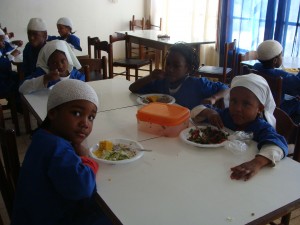

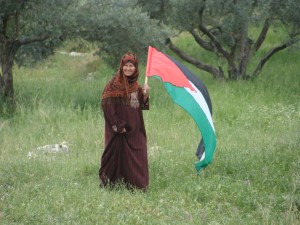

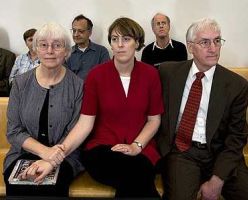
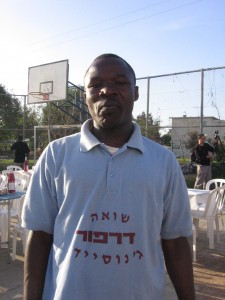

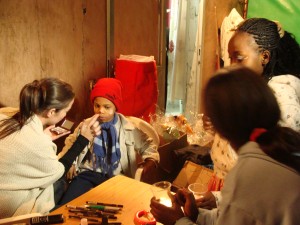 The Jerusalem Post (print edition), March 5, 2010
The Jerusalem Post (print edition), March 5, 2010